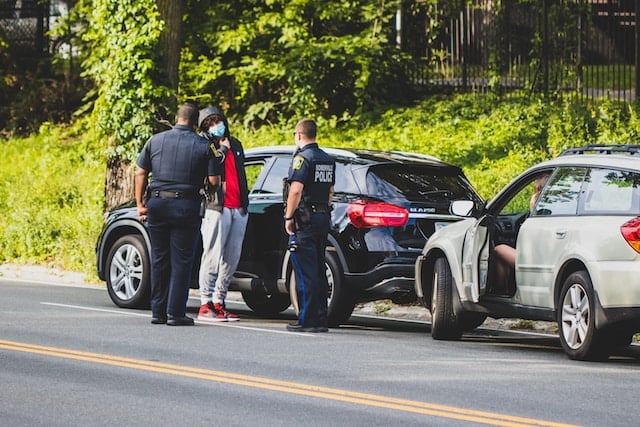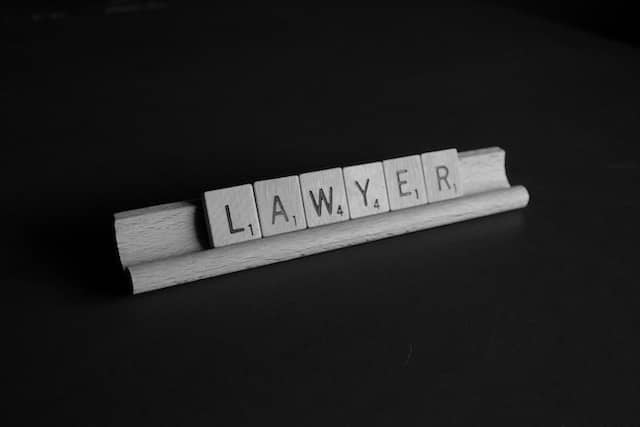
Car accidents are an unfortunate reality, often resulting in physical injuries, emotional distress, and financial burdens. Understanding the car accident settlement process is crucial for victims seeking compensation for their losses. This concise guide will walk you through the basics of car accident settlements, the steps to take after an accident, and the negotiation process. Whether you decide to settle or go to court, being informed will help you make the best decision for your situation.
The Basics of Car Accident Settlements

A car accident settlement is an agreement between the parties involved in an accident, usually facilitated by insurance companies, to resolve a claim for damages. Settlements can cover medical expenses, lost wages, property damage, and pain and suffering. Several factors affect the settlement amount, including the severity of injuries, property damage, and the clarity of fault in the accident.
Insurance companies play a significant role in the settlement process, as they represent their policyholders and aim to minimize the payout. Understanding their tactics and being prepared can make a significant difference in the outcome of your settlement.
Steps to Take After a Car Accident

Seek medical attention
Your health should be your top priority. Even if you feel fine, it’s essential to get checked by a medical professional as some injuries may not be immediately apparent.
Collect evidence and documentation
Gather as much information as possible from the accident scene, including photographs, witness statements, and a copy of the police report.
Notify your insurance provider
Inform your insurance company about the accident as soon as possible, but be cautious about providing a recorded statement without consulting an attorney.
Consult with a car accident attorney

An experienced attorney can help you understand your rights, navigate the settlement process, and ensure that you receive fair compensation for your damages.
Negotiating a Car Accident Settlement
Determine the value of your claim
Calculate your damages, including medical expenses, lost wages, property damage, and pain and suffering. This will serve as a basis for your settlement negotiations.
Develop a negotiation strategy
Be prepared with evidence to support your claim, and have a clear understanding of the minimum amount you’re willing to accept.
Craft a demand letter
A well-written demand letter outlines your claim, the damages you’ve incurred, and the amount you’re seeking in the settlement.
Deal with insurance adjusters
Be prepared to counter lowball offers and tactics used by insurance adjusters to minimize your settlement. Stay firm in your demands and consider involving an attorney to represent you in negotiations.
Car Accident Settlements: Settling or Going to Court
Deciding whether to settle or go to court requires careful consideration of the pros and cons. Settling can save time and resources while providing a guaranteed outcome. However, you may receive a lower amount than you would if you were to win in court. Litigation can result in a higher payout, but it also involves more time, expenses, and uncertainty.
Evaluate the potential outcomes and consult with an attorney to determine the best course of action for your unique situation. Navigating a car accident settlement can be challenging, but being informed and prepared is key to ensuring a fair outcome. Remember to consult with professionals for guidance and support throughout the process.
Frequently Asked Questions: Car Accident Settlements
Q: What is a car accident settlement?
A: A car accident settlement is an agreement between the parties involved in an accident to resolve a claim for damages without going to court. Settlements typically cover medical expenses, lost wages, property damage, and pain and suffering.
Q: How long does it take to receive a car accident settlement?
A: The duration varies based on factors such as the complexity of the case, the cooperation of the insurance companies, and the negotiation process. Settlements can take anywhere from a few weeks to several months or longer.
Q: How is the settlement amount determined?
A: The settlement amount depends on factors such as the severity of injuries, property damage, clarity of fault, and insurance policy limits. Your attorney can help you calculate the value of your claim based on these factors.
Q: Can I negotiate a car accident settlement on my own?
A: While it’s possible to negotiate a settlement without an attorney, it’s generally recommended to consult with a car accident attorney. An experienced attorney can help you understand your rights, navigate the process, and ensure that you receive fair compensation.
Q: What if the insurance company’s offer is too low?
A: You have the right to negotiate and counter the insurance company’s offer. If you’re unable to reach a fair agreement, you may need to consider litigation with the help of an attorney.
Q: Should I accept the first settlement offer?
A: It’s typically advised not to accept the first offer, as insurance companies often start with a lowball amount. Consult with an attorney to assess the offer and determine if it’s fair, or if you should negotiate for a higher amount.
Q: What if my injuries worsen after agreeing to a settlement?
A: Once you accept a settlement, you usually cannot pursue additional compensation for your injuries. It’s essential to wait until you have a clear understanding of the full extent of your injuries before settling your claim.
Q: Can I still file a lawsuit after agreeing to a settlement?
A: In most cases, accepting a settlement means you’re waiving your right to pursue further legal action related to the accident. It’s important to discuss your options with an attorney before accepting any settlement offer.
Q: What if the at-fault driver has no insurance or insufficient coverage?
A: You may be able to file a claim with your own insurance company if you have uninsured/underinsured motorist coverage. Consult with your insurance provider and an attorney to understand your options.
Q: How can an attorney help with my car accident settlement?
A: An experienced car accident attorney can help you understand your rights, evaluate the value of your claim, negotiate with insurance companies, and represent you in court if necessary. Their expertise can significantly impact the outcome of your settlement.
Q: What happens if we can’t reach a settlement agreement?
A: If you’re unable to reach a settlement agreement with the insurance company, you may need to consider filing a lawsuit and pursuing your claim in court. Discuss your options with an attorney to determine the best course of action.
Q: How do I know if I should settle or go to court?
A: Deciding between settling and going to court requires careful consideration of factors such as the strength of your case, the potential recovery amount, and the time and expenses involved in litigation. Consult with an attorney to help you make an informed decision.
Q: Are car accident settlements taxable?
A: Generally, compensation for physical injuries and property damage from car accident settlements is not taxable. However, other portions of the settlement, such as lost wages or punitive damages, may be subject to taxes. Consult with a tax professional to understand the specific tax implications of your settlement.
Q: Can I still receive compensation if I was partially at fault for the accident?
A: Depending on the laws in your state, you may still be eligible for compensation even if you were partially at fault. Some states follow a comparative negligence rule, which allows for compensation based on the percentage of fault attributed to each party. Consult with an attorney to understand how the laws in your state apply to your case.
Q: How do I deal with medical bills while waiting for a settlement?
A: While waiting for a settlement, you may be able to use your health insurance, medical payment coverage from your auto insurance policy, or negotiate a payment plan with your medical providers. An attorney can also help you explore options for addressing medical bills during the settlement process.
Q: What is a structured settlement, and is it a good option?
A: A structured settlement is an arrangement where you receive your settlement amount in periodic payments rather than a lump sum. This option can provide financial stability over time and may have tax advantages. Discuss the pros and cons of a structured settlement with an attorney and financial advisor to determine if it’s suitable for your situation.
Q: Can I reopen a car accident settlement if I discover new injuries or damages later on?
A: In most cases, once a settlement is finalized, you cannot reopen the claim to seek additional compensation. It’s crucial to fully understand the extent of your injuries and damages before agreeing to a settlement.
Q: What if the insurance company denies my claim?
A: If your claim is denied, you can request a written explanation from the insurance company and review the reason for the denial. You may need to gather additional evidence or consult with an attorney to challenge the denial and pursue your claim.
Q: How do I choose the right car accident attorney?
A: Select an attorney with experience in car accident cases, a strong track record, and good communication skills. Ask for referrals, read reviews, and schedule consultations to find an attorney who is a good fit for your needs.
Q: Can I switch attorneys during the settlement process?
A: Yes, you have the right to change attorneys during the settlement process if you’re unsatisfied with your current representation. However, keep in mind that switching attorneys may affect the progress and timeline of your case.
Q: What is a statute of limitations, and how does it apply to car accident settlements?
A: The statute of limitations is a legal time limit within which you must file a lawsuit for your car accident claim. This time limit varies by state and the type of claim. If you fail to file within the specified period, you may lose your right to pursue compensation. Consult with an attorney to understand the statute of limitations in your state.
Q: Can I negotiate a higher settlement if my car is considered a total loss?
A: If your car is deemed a total loss, you may negotiate with the insurance company for a higher settlement based on the fair market value of your vehicle, any upgrades or enhancements, and comparable local listings. It’s important to provide documentation to support your claim for a higher valuation.
Q: How do pain and suffering damages factor into a settlement?
A: Pain and suffering damages compensate for the physical and emotional distress resulting from a car accident. These damages are subjective and can be challenging to quantify. Attorneys and insurance companies may use various methods to estimate pain and suffering, such as the multiplier method or the per diem approach. An attorney can help you determine an appropriate value for your pain and suffering damages.
Q: What is a subrogation claim, and how does it affect my settlement?
A: Subrogation is the process by which your insurance company seeks reimbursement from the at-fault party’s insurance company for payments made on your behalf. A subrogation claim can affect the amount you receive in a settlement, as your insurance company may be entitled to a portion of the recovery. Consult with an attorney to understand how subrogation may impact your case.
Q: Will my car accident settlement be affected if I have a pre-existing condition?
A: A pre-existing condition may affect your settlement if the insurance company argues that your injuries were not solely caused by the accident. However, if the accident aggravated or worsened your pre-existing condition, you may still be entitled to compensation. It’s important to provide medical records and documentation to support your claim and to consult with an attorney.
Q: How do I prove lost wages in a car accident settlement?
A: To prove lost wages, you’ll need to provide documentation, such as pay stubs, tax returns, and a letter from your employer detailing your normal work hours, salary, and the time you missed from work due to the accident. An attorney can help you gather the necessary evidence to support your lost wages claim.
Q: Can my car accident settlement cover future medical expenses?
A: Yes, a car accident settlement can include compensation for future medical expenses related to your injuries. To claim future medical expenses, you’ll need documentation from your healthcare providers estimating the cost of ongoing treatment, rehabilitation, or any necessary surgeries. An attorney can help you build a strong case for future medical expenses.
Q: What happens if the at-fault driver’s insurance policy limits are lower than my damages?
A: If the at-fault driver’s insurance policy limits are insufficient to cover your damages, you may be able to seek compensation through your own insurance’s underinsured motorist coverage or explore other legal options, such as filing a lawsuit against the at-fault driver. Consult with an attorney to determine the best course of action for your case.
Q: Can I recover damages for emotional distress in a car accident settlement?
A: Emotional distress damages may be included in a car accident settlement as part of pain and suffering compensation. To support a claim for emotional distress, you may need documentation from mental health professionals, personal journals, or testimony from friends and family who can attest to your emotional state after the accident. An attorney can help you build a strong case for emotional distress damages.
Q: Can I seek compensation for property damage separately from personal injury damages?
A: Yes, you can seek compensation for property damage separately from personal injury damages in a car accident settlement. However, it’s generally more efficient to address both types of damages together during the negotiation process. Discuss your options with an attorney to determine the best approach for your case.
Q: How do I handle medical liens on my car accident settlement?
A: Medical liens are claims made by healthcare providers, insurers, or government agencies to recover the cost of medical treatment provided to you after a car accident. These liens may affect the amount of your settlement that you ultimately receive. An attorney can help you negotiate with lienholders and navigate the complexities of medical liens in your settlement.
Q: How does comparative negligence affect my car accident settlement?
A: Comparative negligence is a legal principle that takes into account each party’s degree of fault in an accident. In states that follow comparative negligence, your settlement amount may be reduced by the percentage of fault attributed to you. For example, if you were found to be 30% at fault for the accident, your settlement amount would be reduced by 30%. Consult with an attorney to understand how comparative negligence applies in your state and case.
Q: Can I still pursue a car accident settlement if the at-fault driver is deceased?
A: Yes, you can still pursue a car accident settlement if the at-fault driver is deceased. In this situation, you would typically file a claim with the deceased driver’s insurance company or pursue a claim against their estate. An attorney can help you navigate this complex process.
Q: How do I handle a car accident settlement if I was a passenger in the vehicle?
A: If you were a passenger in a car accident, you can file a claim for damages against the at-fault driver’s insurance, whether that is the driver of the vehicle you were in or another driver involved in the accident. In some cases, you may need to file claims with multiple insurance companies if more than one driver is found to be at fault. Consult with an attorney to understand your rights and the best course of action for your case.
Q: What if I was injured in a rideshare or taxi accident? How does this affect my car accident settlement?
A: If you were injured in a rideshare or taxi accident, the process of pursuing a car accident settlement may be more complex due to the involvement of the rideshare or taxi company’s insurance. Depending on the circumstances of the accident, you may need to file claims with the driver’s personal insurance, the rideshare or taxi company’s insurance, or both. An attorney can help you navigate this process and ensure you receive fair compensation for your injuries.


